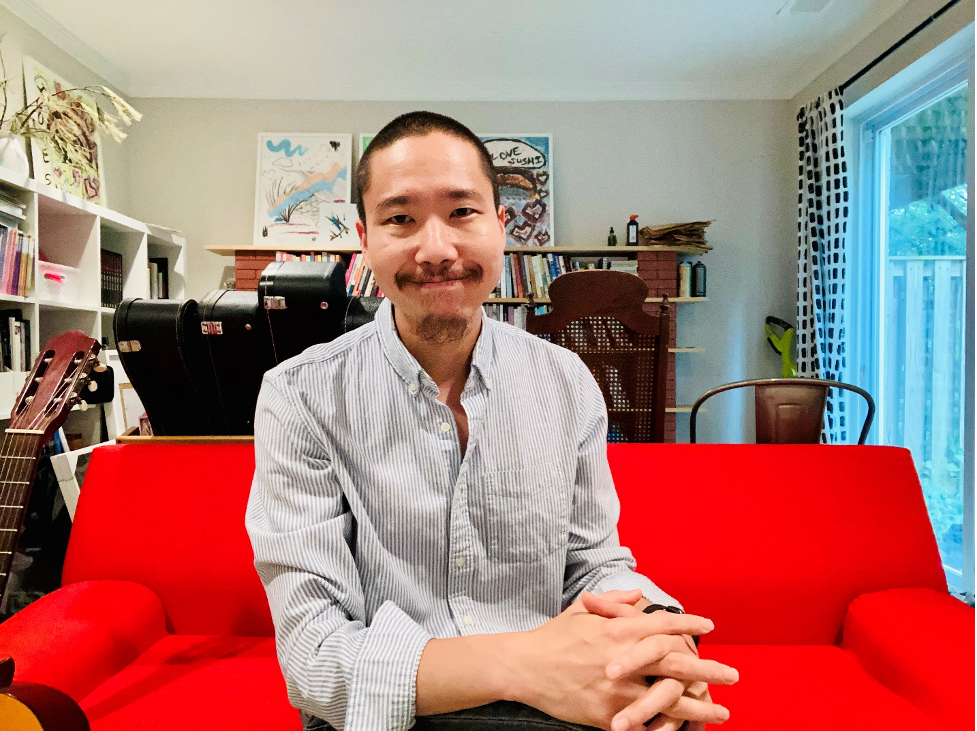 Sung Eun Chang is a Director for Innovation and Intellectual Property at the Office of the U.S. Trade Representative.
Sung Eun Chang is a Director for Innovation and Intellectual Property at the Office of the U.S. Trade Representative.
Growing up, Mr. Chang had an itinerant life: he was born in Seoul, South Korea. When he was four his family immigrated to Los Angeles and after a short period in Rockville, Maryland, they moved back to Korea—Daegu this time. In middle school, Mr. Chang and his younger brother moved to Reno, Nevada to live with relatives, where Mr. Chang spent his teenage and undergraduate years before moving to Washington, DC to study law at the American University, Washington College of Law.
Mr. Chang says he had wanted to return to USTR since interning here during law school: “Starting law school just as the financial crisis hit certainly did not help in terms of starting a career. So I hustled. A coffee here led to a short gig at an embassy, a coffee there led to a “real” legal job at a boutique firm. A coffee here led to an opportunity to work on global trade policy issues at an iconic American company, a coffee there led to an attorney position at a federal agency. And more coffees led me back to the Office of Innovation and Intellectual Property. The generous, self-giving people—my mentors, bosses, colleagues, and friends—that chose to grab coffee, to remember me, to be a willing reference, and give me a chance led me here.”
As a Director in the Office of Innovation and Intellectual Property, Mr. Chang regularly works with foreign governments, interagency colleagues, and industry stakeholders to advance the Administration’s trade agenda– and he’s passionate about seeing the real impact Trade has and the people he works with.
“Even as a Director, I know my work makes a difference. Not quite a dent in the universe, but each memo I write, each meeting I lead, each negotiation I participate in moves the trade policy needle. Understanding the power of consequence is profound and humbling. This, however, would be meaningless if one did not have the joy of doing it together with wonderful people. I’ve been blessed to work daily with kind, understanding, and brilliant teammates. The strength of our office, and of the agency, lies not only in our collective prowess and dedication, but also in our sense of commonality amidst diversity and mutuality amidst divergence. This feeling of “belonging” is a rarity, but I have been graced with it here.”
When asked about how this last year has been for him, Mr. Chang opens a door into how his family found ways to cope with these painful times, and what AANHPI Heritage Month mean to him. We will let him tell in his own words:
“I spent much of this past year hunkered at home. As I watched in dismay the unspeakable attacks on our community—and other communities of color—I hosted my parents for a two-month stay at our cozy townhome. Over memorable meals of mom-loved jjigaes, broiled fish, and chive pancakes, we relived snapshots of Los Angeles in 1992, of the mountains our parents’ generation scaled to carve out a home in unrelenting buffs. As we Facetimed our ailing grandmother in nursing home, we relived portraits of the war-torn valleys her generation trudged through to spread their already soaking wings over shivering young. As we played hide-and-seek with our three-year-old daughter, we witnessed time being written in real time, one squeal, one smile at a time. We cried, we laughed. We worried, we prayed. And as we, three generations, planted marigolds in the front yard, we dreamt of a hope and peace not found upon what the world has given us, but upon a truth we found within—that where our seeds fall will bloom a life more beautiful than what the sun has seen to date.
This month is a month of stories. Even within the AANHPI community, each of us have travelled different paths and are chiseling our unique stories. We hear, see, and appreciate the diversity within our commonality, to ultimately respect and realize that our cobweb of stories point to something greater, something stronger. This month is about dreaming of the next generation—my three-year-old—finding their stories, embodying how not to find their identity in a dry list of accomplishments or evaporative aspirations, but instead in a story that is grander than themselves. To watch her grow as a person of the people, understanding and “standing under” stories that are different from her own, as a warrior, a leader, and a friend to those whose voices have been battered through and through. That is the story we hope to write.”







